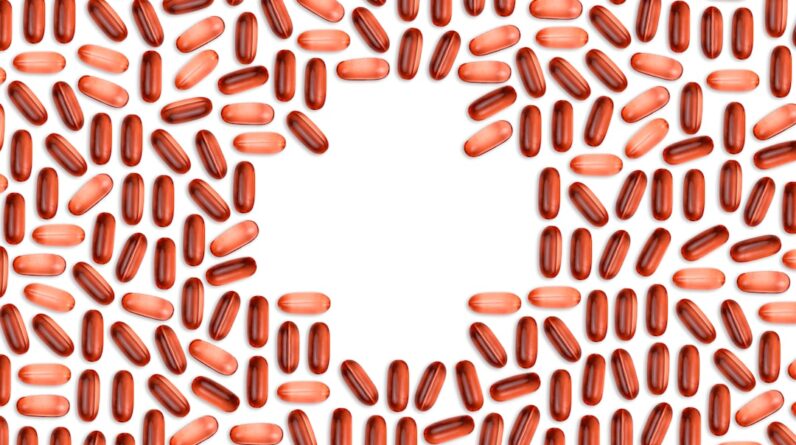Creatine is a naturally occurring compound found in small amounts in certain foods and synthesized by the body, primarily in the liver, kidneys, and pancreas. It is composed of three amino acids: arginine, glycine, and methionine. You may have encountered creatine in various forms, such as creatine monohydrate, which is the most researched and widely used supplement among athletes and fitness enthusiasts.
This compound plays a crucial role in energy production, particularly during high-intensity exercise, making it a popular choice for those looking to enhance their physical performance. In addition to its presence in the body, creatine can be obtained from dietary sources, particularly animal products like red meat and fish. However, the amounts found in food are relatively small compared to what can be achieved through supplementation.
As you delve deeper into the world of fitness and nutrition, understanding creatine’s role can help you make informed decisions about your supplementation strategy and overall health.
Key Takeaways
- Creatine is a natural compound that plays a key role in energy production during high-intensity, short-duration activities such as weightlifting or sprinting.
- Creatine works in the body by increasing the production of ATP, the primary energy source for muscle contractions, leading to improved muscle strength and power output.
- The benefits of Creatine for muscle strength and energy production include increased muscle mass, enhanced exercise performance, and faster recovery between bouts of high-intensity exercise.
- Creatine also plays a role in brain function and cognitive performance, with studies suggesting potential benefits for memory, attention, and mental fatigue.
- When used as a health supplement, Creatine can enhance exercise performance and physical endurance, making it popular among athletes and fitness enthusiasts.
How does Creatine work in the body?
Creatine functions primarily by replenishing adenosine triphosphate (ATP), the energy currency of your cells. During short bursts of intense activity, such as sprinting or weightlifting, your body relies on ATP for immediate energy. However, ATP stores are limited and can deplete quickly.
This is where creatine comes into play. When you supplement with creatine, it increases the phosphocreatine stores in your muscles, allowing for a more rapid regeneration of ATP during high-intensity efforts. As you engage in strenuous exercise, your body breaks down ATP to release energy.
The increased availability of phosphocreatine from creatine supplementation helps to resynthesize ATP more efficiently. This means that you can sustain high levels of performance for longer periods, allowing you to push harder during workouts and potentially achieve better results over time. Understanding this mechanism can empower you to optimize your training sessions and maximize your gains.
The benefits of Creatine for muscle strength and energy production

One of the most well-documented benefits of creatine supplementation is its ability to enhance muscle strength. Research consistently shows that individuals who incorporate creatine into their training regimens experience significant improvements in strength and power output. This is particularly beneficial for activities that require short bursts of energy, such as weightlifting or sprinting.
By increasing your muscle’s phosphocreatine stores, creatine allows you to lift heavier weights or perform more repetitions, ultimately leading to greater muscle hypertrophy over time. In addition to strength gains, creatine also plays a vital role in energy production during exercise. When you engage in high-intensity workouts, your body demands quick energy sources.
Creatine supplementation ensures that your muscles have an adequate supply of phosphocreatine to regenerate ATP rapidly. This not only enhances your performance during workouts but also contributes to improved recovery times between sets or exercises. As a result, you may find that you can train harder and more frequently, leading to better overall fitness outcomes.
Creatine’s role in brain function and cognitive performance
While creatine is often associated with physical performance, its benefits extend beyond the gym. Emerging research suggests that creatine may also play a significant role in brain function and cognitive performance. The brain requires a substantial amount of energy to function optimally, and ATP is crucial for various cognitive processes, including memory, attention, and problem-solving skills.
By increasing the availability of phosphocreatine in the brain, creatine supplementation may enhance cognitive function, particularly during mentally demanding tasks. Studies have shown that individuals who supplement with creatine may experience improvements in memory recall and overall cognitive performance. This is particularly relevant for those who engage in activities requiring sustained mental effort or focus.
If you’re a student or someone who frequently engages in complex problem-solving tasks, incorporating creatine into your routine could provide an additional edge in cognitive performance.
How Creatine can enhance exercise performance and physical endurance
Creatine’s impact on exercise performance is not limited to strength training; it can also enhance endurance activities. While traditionally associated with short bursts of high-intensity efforts, recent studies indicate that creatine may improve performance in endurance sports as well. By increasing the availability of energy substrates in your muscles, creatine can help delay fatigue during prolonged exercise sessions.
For endurance athletes, this means that you may be able to maintain a higher intensity for longer periods without succumbing to fatigue. Whether you’re running a marathon or cycling long distances, creatine supplementation could provide the extra boost needed to push through challenging moments. Additionally, the improved recovery associated with creatine use allows you to train more effectively and consistently, ultimately leading to better endurance performance over time.
The potential side effects and risks of using Creatine

While creatine is generally considered safe for most individuals when used appropriately, it’s essential to be aware of potential side effects and risks associated with its use. Some people may experience gastrointestinal discomfort, such as bloating or cramping, particularly when taking higher doses or not drinking enough water. Staying well-hydrated while supplementing with creatine can help mitigate these issues.
Another concern often raised about creatine is its potential impact on kidney function. While research has not conclusively shown that creatine causes kidney damage in healthy individuals, those with pre-existing kidney conditions should exercise caution and consult a healthcare professional before starting supplementation. It’s crucial to listen to your body and monitor how you feel while using creatine to ensure that it aligns with your health goals.
The recommended dosage and usage of Creatine as a health supplement
When it comes to dosing creatine, there are generally two approaches: loading and maintenance phases. The loading phase typically involves taking around 20 grams of creatine per day for five to seven days, divided into four doses throughout the day. This approach saturates your muscles with creatine quickly.
After the loading phase, a maintenance dose of 3 to 5 grams per day is recommended to maintain elevated levels. Alternatively, some individuals prefer to skip the loading phase altogether and start with a daily maintenance dose of 3 to 5 grams from the outset. While this method may take longer to achieve full muscle saturation, it can still be effective over time without the potential gastrointestinal discomfort associated with higher doses.
Regardless of the approach you choose, consistency is key; incorporating creatine into your daily routine will yield the best results.
The importance of consulting a healthcare professional before using Creatine
Before embarking on any supplementation journey, including creatine use, it’s crucial to consult with a healthcare professional or registered dietitian. They can help assess your individual health status, dietary needs, and fitness goals to determine whether creatine supplementation is appropriate for you. This step is especially important if you have any pre-existing medical conditions or are taking medications that could interact with supplements.
A healthcare professional can also provide guidance on proper dosing and usage tailored to your specific needs. By seeking expert advice, you can ensure that you’re making informed decisions about your health and wellness journey while minimizing potential risks associated with supplementation. Remember that while creatine can offer numerous benefits for both physical performance and cognitive function, it should be part of a well-rounded approach that includes proper nutrition, hydration, and exercise.
If you are interested in health supplements, you may also want to check out this article on the best multivitamin for men. Multivitamins can help fill in any nutritional gaps in your diet and support overall health. Additionally, if you are looking to improve your skin, hair, and nail health, you may benefit from reading about supplements for skin, hair, and nail health. And if you are trying to lose weight, consider incorporating natural foods into your diet by reading about eating natural for weight loss. These articles can provide valuable information on how to enhance your overall well-being through supplementation and dietary choices.
FAQs
What is creatine?
Creatine is a natural substance that plays a crucial role in the production of energy during high-intensity, short-duration activities such as weightlifting or sprinting.
How does creatine work in the body?
Creatine is stored in the muscles and helps produce adenosine triphosphate (ATP), which is the primary energy currency of the cell. This allows for increased energy production during intense physical activity.
What are the benefits of taking creatine as a health supplement?
Creatine supplementation has been shown to improve muscle strength, increase energy production, enhance brain function, and improve exercise performance.
Is creatine safe to use as a health supplement?
When taken within recommended dosages, creatine is considered safe for most people. However, individuals with kidney disease or other pre-existing medical conditions should consult a healthcare professional before using creatine.
What are the sources of creatine?
Creatine is naturally found in small amounts in animal products such as meat and fish. It can also be obtained through dietary supplements.
How should creatine be taken as a health supplement?
The typical dosage for creatine supplementation is 3-5 grams per day. It can be taken in powder form mixed with water or juice, or in capsule form.
Are there any side effects of creatine supplementation?
Some individuals may experience mild side effects such as stomach discomfort, diarrhea, or muscle cramping. It is important to stay hydrated while taking creatine to minimize these effects.
Can creatine be used by athletes and fitness enthusiasts?
Creatine is a popular supplement among athletes and fitness enthusiasts due to its ability to improve muscle strength, energy production, and exercise performance. It is commonly used by individuals engaging in high-intensity, short-duration activities.






